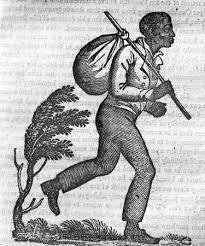By Don Allen, M.A. Ed./MAT
Looking through the lens of postmodernism as it pertains to color, race, class and more specifically, the African American, it becomes even more problematic to define the modern, postmodern and post-post modernism. Not because we cannot comprehend the
 |
| Don Allen, M.A. Ed./MAT |
I tend to agree with the other black person on the critique of hooks amazement and have been unsettled by the lack of black literary agents who have not looked to solidify a meaning exclusively to black culture. If hooks and others would look at the examples of modernism to include the post and post-post in black culture there is an extensive prospect to break the mold set by the white-patriarchal construct as it pertains to having exclusivity in the hierarchy of literary devises. To define a change in literary meaning, you first need an example of devise you want to amend. For the simple sake of argument, the black culture could look at the sport of boxing. To look at the modern in boxing, one could argue that Mohammad Ali and Joe Frasier could fit perfectly in a literary definition.
From a postmodern definition, boxers like Sugar Ray Leonard, Wilfred Benítez, Thomas Hearns, Roberto Durán, and Marvin Hagler, called the boxers of the decade for the 1980s by Sports Illustrated fit fine. Nevertheless, when looking at post-post modernism in this example, stepping away from boxing’s golden age society has the Ultimate Fighting Championship (UFC), which is the largest mixed martial art promotion company in the world featuring most of the top-ranked fighters in the sport. In addition, the World Wrestling Entertainment, Inc. (WWE), which is an American publicly traded, privately controlled Entertainment Company that deals primarily in professional wrestling, with major revenue streams from television and cable.
As a Black author, given the examples above, we could argue for a new literary device, or critical apparatus such as Current Relevatism – not to be confused with Cultural relativism, the idea that a person's beliefs, values, and practices should be understood based on that person's own culture, rather than be judged against the criteria of another. The meaning of ‘Current Relevatism,’ is that during our arts, society and literary history (Black America), there were moments in the depths that are timely and relevant in our cannons that lay bare to likening of Marxism, capitalism, modernism, postmodernism and postmodernity that can only be defined by the current state relevant to the black literary cultures purchase. Hence, while hooks understands what could be labeled as modern, she negates the opportunity to insert a new critical apparatus like Current Relevatism to account for the white-patriarchal construct and what it has used to create meaning and identity for black bodies, literature and culture for far too long. “During the sixties, the Black Power Movement was influenced by perspectives that could easily be labeled modernist,” (129).
If Black literary agents cannot idea, create and distribute new meaning in the areas of literatures critical apparatus to define and review for debate, we have not gotten any further as intellectuals then the common household cat. Black Postmodernism and the definitions, which have never been cleared or applied, are unnecessary?
Works Cited: Malpas, Simon. "Postmodern Blackness | Bell Hooks." Postmodern Debates. New York: Palgrave, 2001. 128-135. Print.




